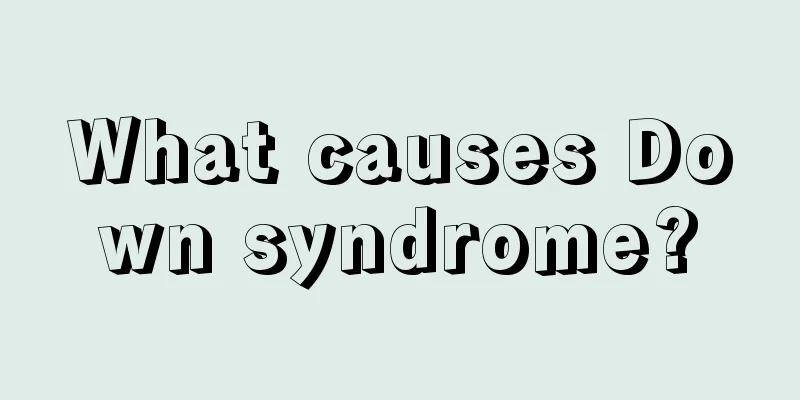What medicine is effective for children with urticaria

|
Everyone should be familiar with the skin disease urticaria. Generally speaking, adults are more likely to suffer from the disease, but children may also suffer from urticaria. Because children do not understand this disease, they scratch their skin when it itches, which can easily break the skin and cause infection by bacteria, leading to other diseases. Children's urticaria can be treated with medication. Here we will introduce what medicines are effective for children's urticaria. drug : 1. Loratadine syrup It is mainly used to relieve symptoms related to allergic rhinitis, and is also suitable for relieving chronic urticaria and itchy skin diseases. Directions: Children aged 2-12 years: Weight > 30 kg: Take once a day, 2 teaspoons (10 ml) each time. Body weight ≤ 30 kg: 1 teaspoon (5 ml), once a day. 2. Levocetirizine Hydrochloride Tablets It is mainly used to relieve allergic symptoms of allergic diseases, such as allergic rhinitis (including eye allergic symptoms), urticaria, etc. Dosage: Children aged 2-6 years old, take half a tablet once a day. 3. Cetirizine Hydrochloride Tablets Suitable for seasonal or perennial allergic rhinitis, urticaria and skin itching caused by allergens. Dosage: Oral: Adults or children over 12 years old, 10 mg once a day or as directed by a doctor. If adverse reactions occur, the dosage can be changed to 5 mg in the morning and evening. For children aged 6-11 years, the recommended starting dose is 5 mg or 10 mg once a day, depending on the severity of symptoms. For children aged 2-5 years, the recommended starting dose is 2.5 mg once a day; the maximum dose can be increased to 5 mg once a day, or 2.5 mg once every 12 hours. If you don’t trust western medicine, you can also choose traditional Chinese medicine ephedra, Dictamni bark, Kochia scoparia, Coptis chinensis, and Spinach for treatment. They can clear away heat and wind, remove dampness and relieve itching, and can completely cure the disease without recurrence. During treatment, be sure to drink plenty of boiled water to keep your bowel movements smooth. These medicines can be purchased at pharmacies. They are economical, convenient and effective. Treatment Guidelines : 1. Find and eliminate allergens Treat the disorder causing urticaria. Autoimmune urticaria is difficult to treat, but giving intravenous immune globulin or plasma dialysis can relieve symptoms. 2. Apply anti-itch lotion topically Such as calamine lotion (with menthol added) or zinc oxide lotion. 3. Medication (1) Oral antihistamines. Commonly used first-generation antihistamines include chlorpheniramine maleate tablets, promethazine hydrochloride, diphenhydramine, doxepin, ketotifen, etc.; second-generation H1 receptor antagonists have the advantages of good efficacy and no obvious central nervous system inhibitory effect. They can be used for children over 2 years old. Second-generation antihistamines include cetirizine hydrochloride, loratadine, levocetirizine, desloratadine, fexofenadine, acrivastine, ebastine, epinastine, mizolastine, olopatadine, etc. Take orally once daily. Calcium supplements and vitamin C can reduce the permeability of capillaries and help relieve symptoms. The combination of H2 receptor antagonists (such as cimetidine and ranitidine) and H1 receptor antagonists can treat acute urticaria with obvious abdominal pain. Cyproheptadine can be used to treat chronic or cold urticaria. (2) For stubborn cases, oral prednisone tablets or intravenous hydrocortisone may be used as appropriate, but it is not a routine medication. Different drugs have significantly different minimum age limits and dosages, and should be used in accordance with the drug instructions. In children who do not respond to treatment, a combination of first-generation (for evening use) and second-generation (for daytime use) antihistamines can be used, but care should be taken to avoid the use of sedating antihistamines in school-age children. |
<<: Do you know what consequences does premature closure of the fontanelle have?
>>: Causes of urticaria in children
Recommend
At what age can a baby sit in a stroller?
During the child's development process, paren...
How should children take antiviral oral solution?
With the continuous development of medical techno...
What are the benefits of giving probiotics to babies?
Many mothers must have heard this sentence: in ad...
What should I do if my 10-month-old baby has diarrhea and fever?
There is a newborn baby at home who is only ten m...
What to do if newborns have difficulty defecating in winter
The weather is relatively dry in winter, and newb...
What are the symptoms of zinc deficiency in a two-year-old baby?
In life, most children suffer from anorexia, so t...
Introduction to neonatal swallowing syndrome
For a disease called neonatal swallowing syndrome...
What causes children's cold hands and feet?
Many young children have cold hands and feet, whi...
The child's urine is a little red
We all know that normal people's urine is lig...
What is the cure for blisters on children's fingers?
There will always be various problems when a chil...
What should I do if my child has a fever and cough recently?
We all know that children are in a period of rapi...
What should I do if my child has onychomycosis?
Some children often tell their parents that their...
The reason why the baby's teeth grow in the wrong order
Generally, when the baby starts to grow teeth, ma...
Why are my baby's lips purple?
Children are the fruit of love and one of the mos...
Do boys develop breasts during puberty?
Everyone knows that when girls enter puberty, the...









